Sedation Dentistry – Rowley, MA
Sit Back and Relax
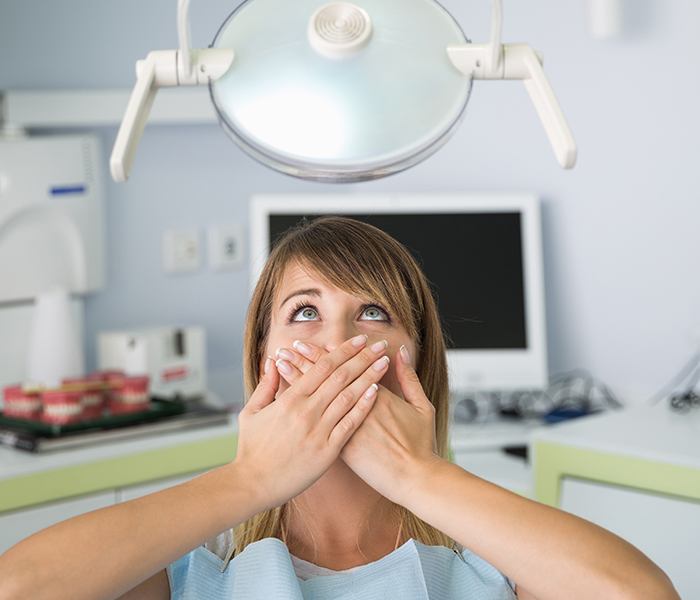
Do you struggle with any of the following problems?
- You experience feelings of anxiety or fear when faced with an upcoming visit to the dentist.
- You had a previous traumatic experience at the dentist.
- You have a difficult time becoming numb from local anesthesia.
- You have a sensitive gag reflex.
- You’re afraid of needles or other tools that are commonly used in dental work.
If one or more of these circumstances is true for you, then it might be worthwhile to pursue sedation dentistry at our Rowley, MA dental office. These calming techniques can help patients feel much more comfortable and at ease while Dr. St. Clair and the rest of our staff works on improving your smile’s health and beauty.
Why Choose J. Peter St. Clair, DMD for Sedation Dentistry?
- Relaxing, Family-Friendly Environment
- We Give the Care We’d Want to Receive
- Gentle, Empathetic Team
Oral Conscious Sedation
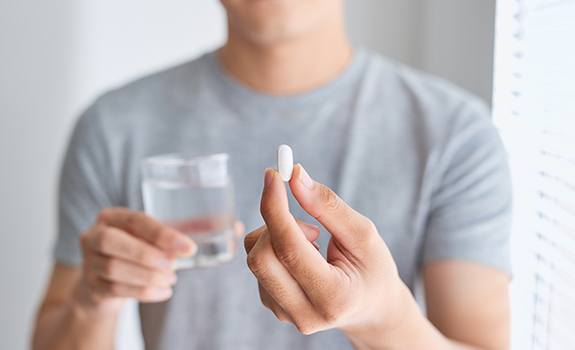
If we determine that oral conscious sedation is right for you, all you have to do is take a sedative pill shortly before your appointment is set to begin. It will make you feel very relaxed, and your procedure should be a breeze. After it is over, you might not even have any memory of it! Many patients like this form of sedation because it does not involve any needles or masks, and it is extremely effective.
What Is Oral Conscious Sedation?

For oral conscious sedation, we provide a prescription for a powerful sedative in pill form that you should take shortly before your procedure. Valium, Ativan, Halcion, or another medication may be used. Within 15 minutes or so of taking the pill, you can expect to feel very relaxed and somewhat tired. You might drift off to sleep during your appointment, but you will not be totally unconscious. It will remain possible for us to awaken you with gentle stimuli, and you will still be able to respond to questions and directions from our dental team.
How Does Oral Conscious Sedation Work?
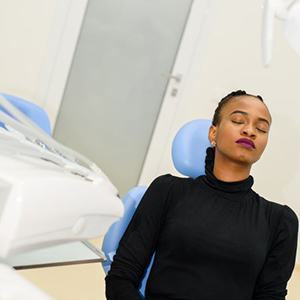
Oral conscious sedation can be very powerful, so it is important that you have a trusted family member or friend available to drive you to and from your appointment. While under the influence of the medication, you can expect to feel very relaxed and calm. It is common for patients to have no memory of their procedure after the sedative wears off. Many people like this aspect of oral conscious sedation because the sights and sounds of the dental office make them feel uneasy.
Are You a Good Candidate for Oral Conscious Sedation?

Oral conscious sedation might be right for you if:
- You suffer from moderate dental anxiety, nervousness, or fear.
- You have a sensitive gag reflex.
- You have medical conditions that make it challenging for you to sit still for long periods of time.
- You are not easily numbed by local anesthesia.
- You had traumatic dental care experiences in the past.
- You do not have any contraindications that would make it unsafe for you to be sedated. For example, oral conscious sedation is generally not recommended for pregnant women or individuals with certain respiratory conditions.
Sleep Dentistry
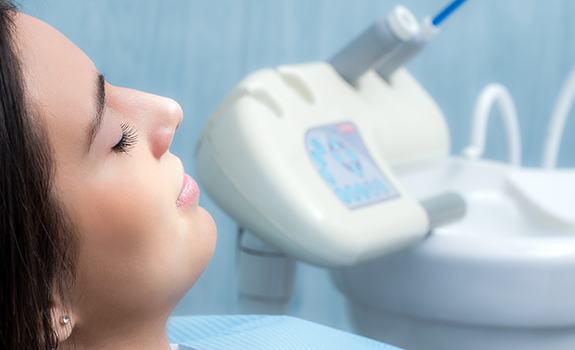
If you require more significant sedation for your dental procedures, our team can refer you to specialists who can provide advanced sedation techniques called "sleep dentistry." This approach involves the administration of sedatives and pain-relieving drugs through an intravenous route, inducing a dream-like state of relaxation. Upon awakening, patients often feel as if only a few minutes have passed. It is important to arrange for a trusted escort to drive you home after the procedure and to closely monitor you until the effects of the sedation have completely worn off.
What Is Sleep Dentistry?
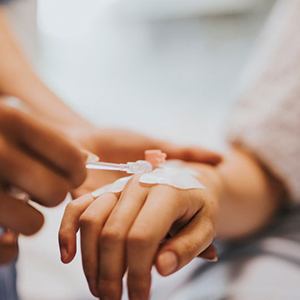
Sleep dentistry is also known as IV sedation or “twilight sedation.” It uses powerful sedatives that are directly administered into the bloodstream.
It is important to note that “sleep dentistry” can mean different things in different contexts. In some cases, it refers to a form of general anesthesia, which causes total unconsciousness. That is only very rarely used in dentistry. More often, it refers to more basic IV sedation, which does not cause unconsciousness. However, it is powerful enough that you might feel as if you are asleep throughout your procedure.
The sedatives take effect very quickly after they are administered, and you may continue to feel their effects for up to a full day after you go home.
Who Is a Good Candidate for Sleep Dentistry?
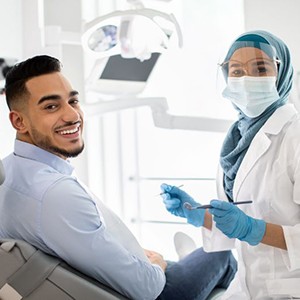
Sleep dentistry in Rowley is very powerful, so it is often reserved for patients with moderate to severe dental anxiety or fear. It can also be helpful if you need complex or extensive treatment, or if you do not respond well to other comfort provisions, such as local anesthesia or oral sedation. Additionally, it may be an option if you have a highly sensitive gag reflex or a medical condition that makes it difficult for you to remain still for extended periods.
We will review your medical history to make sure sleep dentistry is safe for you. Certain conditions, such as pregnancy, might mean that you are not currently a candidate for it.
The Benefits of Sleep Dentistry

Some of the top benefits of sleep dentistry include:
- Deep Relaxation: You should experience a profound sense of calm, making it easier to undergo dental procedures without distress or anxiety.
- Quick Onset of Sedation: Because medications are administered intravenously, you will feel the effects almost immediately, allowing our team to begin treatment sooner.
- Reduced Memory of the Procedure: You are unlikely to remember the sights, sounds, or sensations of your appointment, which can be comforting if you have dental phobia.
- Enhanced Comfort for Lengthy Procedures: You will be able to tolerate longer or more complex treatments without discomfort or restlessness.
- Adjustable Sedation Level: Your provider can precisely control the dosage, ensuring you receive the optimal amount of sedation for your needs and safety.
Sedation Dentistry FAQs
Does dental sedation make you tell secrets?
Sedation dentistry is often depicted as a truth serum in TV shows and movies. However, it’s extremely unlikely that you will share a deep, dark secret while we provide the preventive or restorative dental care you need. Plus, even if you did share something you normally wouldn’t have, you don’t have to worry – it will never leave the walls of the treatment room.
Is sedation dentistry safe while pregnant?
Since the drugs involved in dental sedation can pass onto the fetus, expecting mothers typically aren’t candidates in the first and third trimesters. Even during the second trimester, oral conscious sedation isn’t usually recommended. In short, it’s best to wait until after birth, if possible.
Note: If you are pregnant and struggle with dental-related anxiety, don’t hesitate to let us know. Dr. St. Clair and the rest of our dental team are happy to do whatever we can to ease your nerves or stress – whether that’s taking breaks when needed or talking you through what we’re doing so you know exactly what’s going on.
Will I remember anything with dental sedation?
It’s very common for patients to experience anterograde amnesia, even though they were awake the whole time. This is actually one of the many reasons patients choose oral conscious sedation: the memory loss effect alleviates anxiety, stress, and nerves surrounding dental care.
Is sedation dentistry covered by insurance?
Not always. To find out if your provider covers a portion of the cost, we recommend taking a look at the fine print on your plan. If you have any questions, you can also call the helpline. There’s a chance that they will cover a portion of the cost if you need extensive dental work, like multiple tooth extractions, or you have a condition that makes it difficult to get essential preventive and restorative care without it.
Can dental sedation make you sick?
Since oral conscious sedation is stronger than nitrous oxide, the chances of nausea increase. For that reason, we usually have patients fast prior to their appointment.
Tip: If skipping breakfast and/or lunch has proven to be difficult in the past, schedule your appointment first thing in the morning!
What does it feel like to be sedated at the dentist?
Patients report feeling extremely calm, relaxed, and at-ease with oral conscious sedation. In fact, it’s common for them to fall asleep in the treatment chair – they are that comfortable! That’s why it’s recommended for those with considerable dental-related anxiety!
How long do the effects of oral conscious sedation last?
Unlike nitrous oxide sedation, the effects of oral conscious sedation don’t dissipate instantly. For that reason, you’ll need to arrange for someone you trust to drive you home from your appointment. If possible, have them stay with you until the effects wear off too. That way, they can make sure you’re healing comfortably and that you have everything you need.







